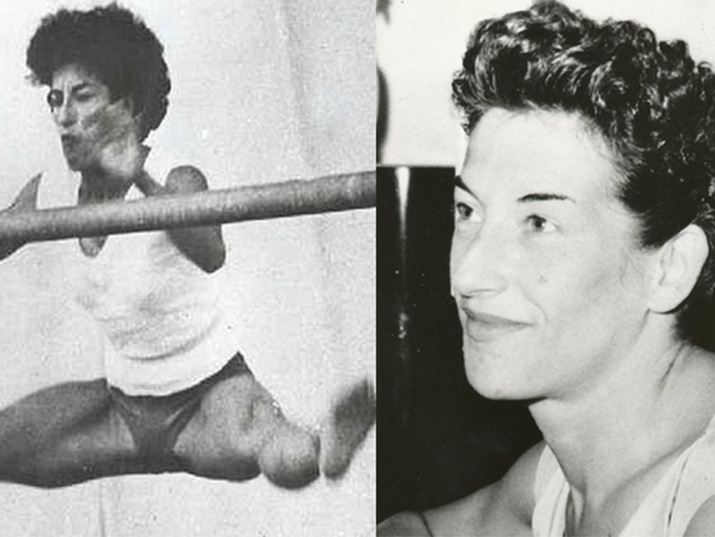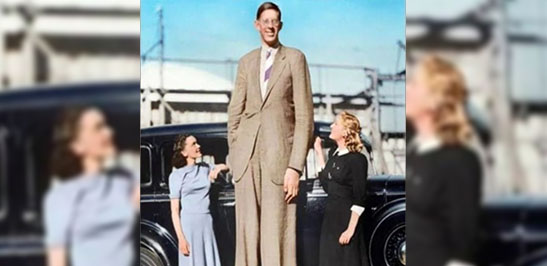Agnes Keleti: Olympic great who fled Nazis and Soviets smashes 100 barrier
During the Holocaust, she escaped the Nazis using forged documents. Just a decade later, she became known worldwide as one of the greatest Olympic gymnasts in history. Learn about the incredible story of Ágnes Keleti.
Israel may have only earned one Olympic gold medal in its history, but Ágnes Keleti, a resident of Herzliya, proudly holds ten Olympic medals, including five golds.
Born on January 9, 1921, in Budapest to a wealthy Jewish family, Keleti began her athletic journey early. At just 4 years old, her father encouraged her “swimming lessons” by tossing her into lakes during family vacations. She was also introduced to gymnastics as a child. However, Ágnes didn’t take the sport seriously until she was 16, spending much of her time playing the cello instead.
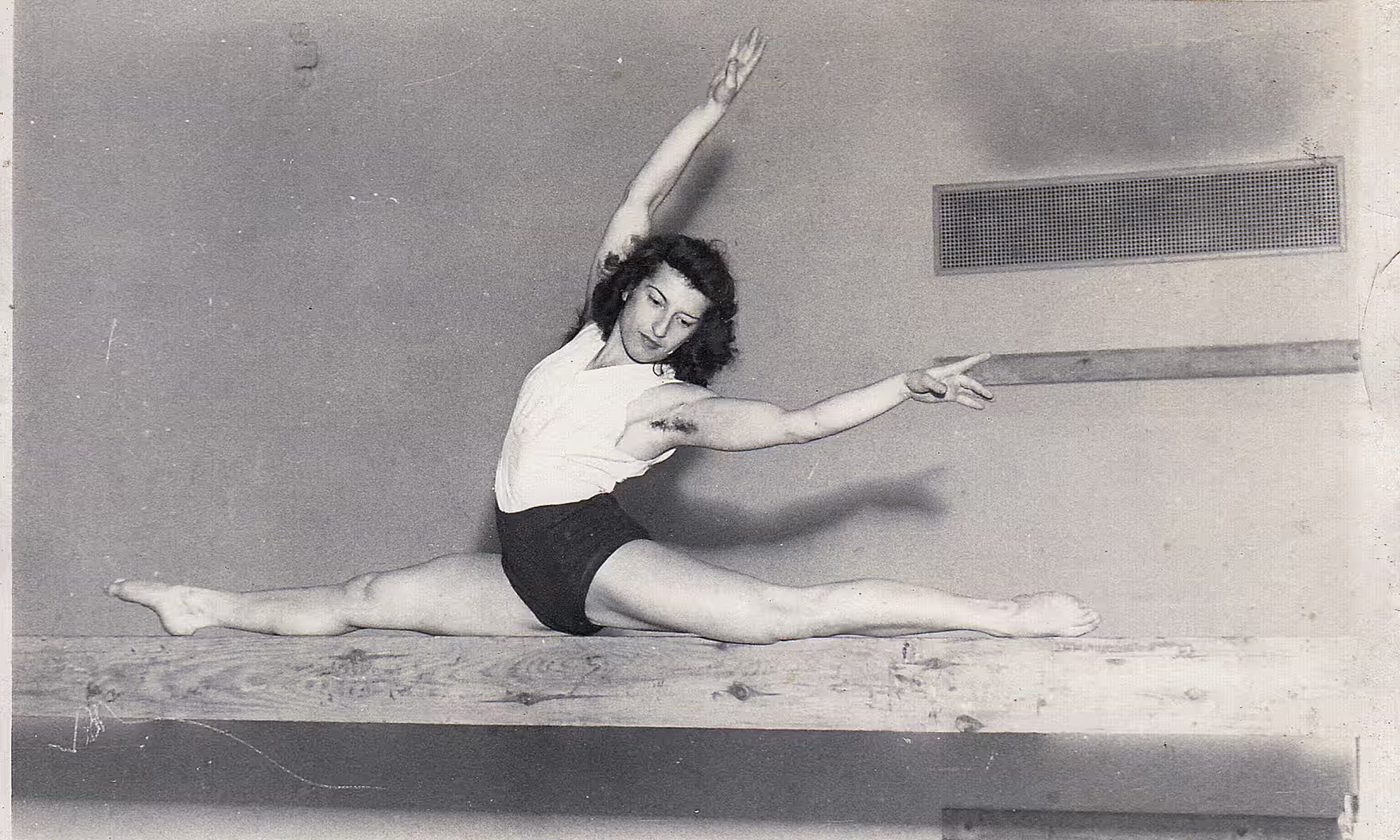
Unlike many athletes driven by a desire for medals, Keleti found joy in the experience itself. “The medals were nice, but I didn’t play sports just for the awards. I loved the daily routine and the chance to see the world. The Communist regime in Hungary was tough and restrictive. Most people couldn’t even leave Hungary. I excelled in sports to travel and was lucky to visit places most could only dream of,” she shared in an interview years ago.
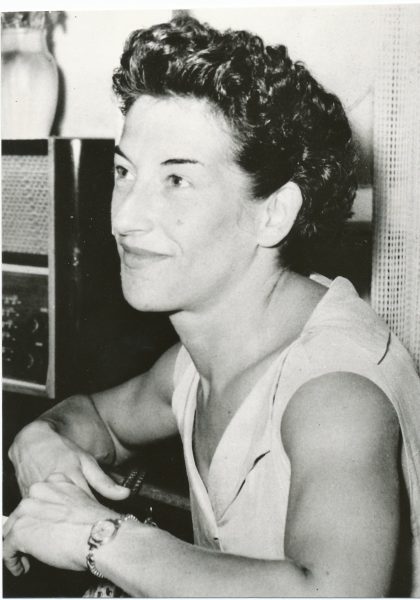
Ágnes Keleti survived the Holocaust by adopting a false identity. During the war, she took on the name “Yuhasz Piroshka” and worked as a village maid. Later, she labored in an ammunition factory. Her mother and sister were saved by the efforts of Swedish diplomat Raoul Wallenberg, who was honored by Israel as one of the Righteous Among the Nations. Sadly, her father and uncles were not as fortunate, losing their lives in Auschwitz.
After the war, Keleti returned to gymnastics, becoming the ‘Hungarian National Champion’ in 1946, a title she held until fleeing the country in 1956. Her global fame came at the 1952 Helsinki Olympics, where, at 31, she won four medals: a gold in floor exercise, silver in the all-around team competition, and two bronze medals in the uneven bars and portable apparatus team event.
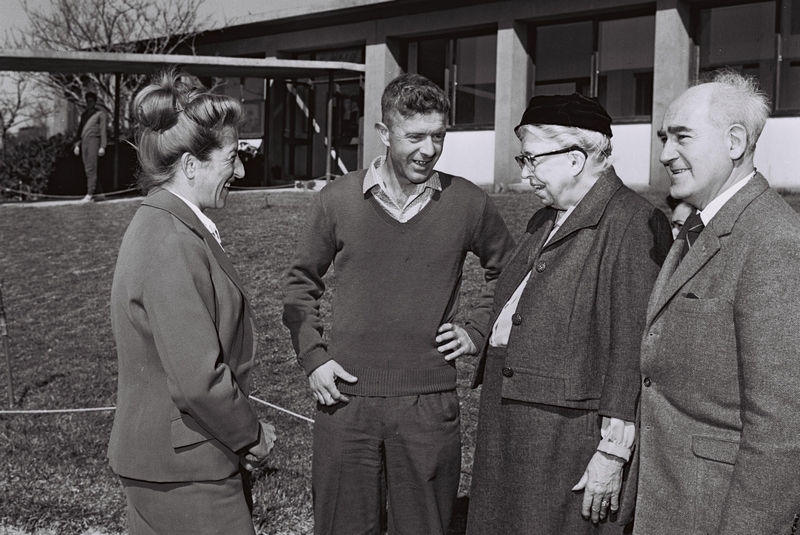
At the 1956 Melbourne Olympics, Ágnes Keleti, then 35 years old—twice the age of most competitors—won six medals. She claimed three individual golds in floor, uneven bars, and balance beam, another gold in the team portable apparatus event, and two silvers in the individual and team all-around competitions.
By the end of her career, Keleti had secured ten Olympic medals, placing her seventh among all-time Olympic medal winners. For comparison, Carl Lewis also holds ten medals, and Mark Spitz has eleven. Keleti’s achievements even surpass familiar legends like Nadia Comăneci and Usain Bolt. What’s remarkable is that she won nine of her ten medals after turning 30.
Escape from Hungary and Immigration to Israel
While Ágnes Keleti was competing in the 1956 Melbourne Olympics, a rebellion in her native Hungary was brutally crushed by the Soviet regime. Faced with the unrest, Keleti made the tough choice not to return to Hungary, the country she was representing. Along with other Hungarian athletes, she sought asylum from the Australian government, which was granted.
Keleti had already considered escaping before leaving for Melbourne. “I was fed up with the regime,” she said in an interview. She recalled a day when, after swimming in the national team’s heated pool, a young man offered her a ride home. But instead of taking her home, he drove her to communist party headquarters, where she was pressured to spy on her teammates. It was then that Keleti knew she had to escape.
Although she was a well-known Olympic athlete, Keleti struggled to find suitable work in Australia. One day, she received a telegram from Professor Gifstein, her former physical education teacher in Budapest. In the message, he informed her that he had decided to move to Israel.
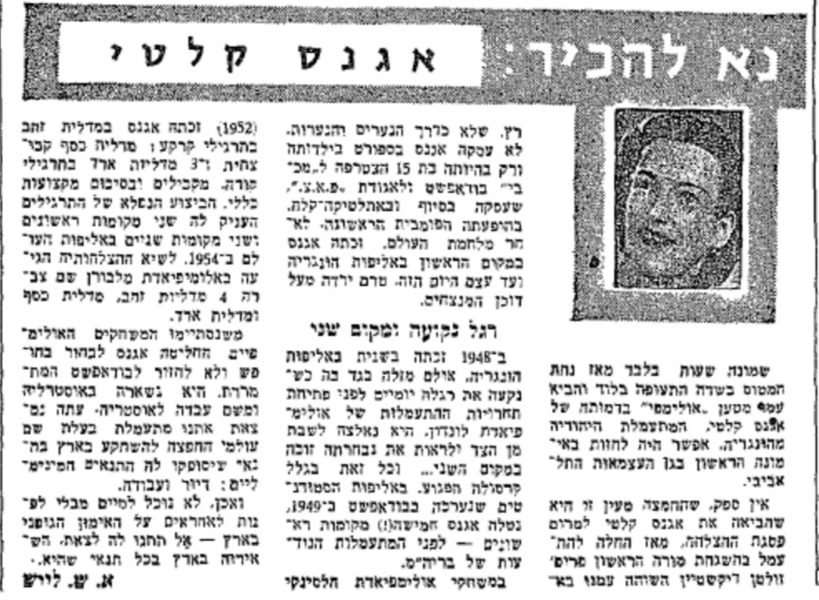
Gifstein invited Keleti to come to Israel to continue her training, but added a warning: “There is nothing here. Bring equipment with you.” Despite this, Keleti accepted the invitation and arrived in Israel in 1957, just in time to compete in the Fifth Maccabiah Games.
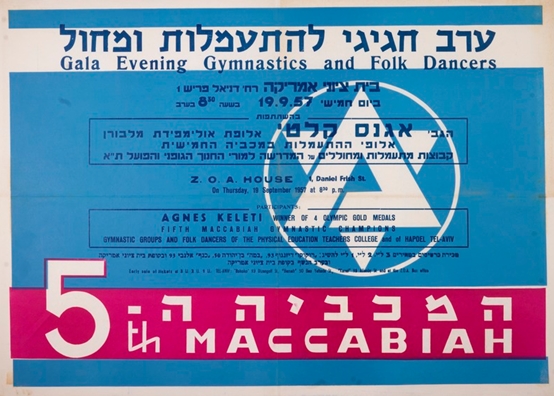
The Israeli press was thrilled by Keleti’s arrival. Her success in the previous Olympics made her one of the biggest stars of the Fifth Maccabiah Games. The stands were packed as Ágnes Keleti performed, now representing her new home, Israel.
